“What we’re seeing now is… a ‘wartime arms expo’. And it certainly seems that way with various NATO systems being sent to the AFU. We have the ‘Patriot’, NASAMS, IRIS-T, ‘Hawk’, etc. Coupled with various Soviet-era ones, this ‘salad of systems’ is a real logistical nightmare that is bound to get worse, ” – Colonel Wolf.
Written by Drago Bosnic, independent geopolitical and military analyst
In the last several weeks, the Kiev regime’s air defense assets have been at the forefront of news coverage while failing to achieve the one that actually matters. The political West has mobilized its entire massive propaganda machine to lionize the SAM (surface-to-air missile) systems the Neo-Nazi junta was provided with, publishing ludicrous claims about shooting down Russian hypersonic missiles and other assets. Despite all the Western disinformation clutter, as well as the near-absolute infowar dominance, the belligerent power pole failed to convince any expert worth their salt to believe such reverie. This is particularly true as the “conclusive evidence” of the alleged “shootdown” is absolutely laughable and nothing but meme-worthy.
However, in order to better understand the true state of the Kiev regime’s air defenses, once again, we decided to interview Colonel Wolf, a retired military officer and former member of an air defense unit of the Yugoslav (and later Serbian) Army. Colonel Wolf spent over 40 years in the military and thanks to his professionalism and extensive combat experience (including against US/NATO aggression on Yugoslavia/Serbia in the 1990s), he has the knowledge necessary for an in-depth assessment of the situation. Our previous interview with Colonel Wolf was published just over a year ago and involved his take on how Russia was conducting its special military operation (SMO). This time, the topic is the performance of the main antagonist in the SMO and how Western deliveries of advanced SAM systems affect the situation on the battlefields.
– Colonel, it’s great to have You back with us and thank You for taking the time to participate in another interview. We would like to start with the basics. Do You think the air defenses of the Kiev regime forces will further diminish or could a constant supply of Western weapons prevent that?
First and foremost, best regards to You and Your respected readers. I am delighted by the opportunity to talk to You once again, especially considering the topic is my absolute favorite and the one I’ve spent most of my life dealing with. I’d like to point out that I often chuckle when seeing how the mass media report on air defenses and how this almost mandatory simplification makes everyone think that [air defense] systems are this giant magical bubble that just destroys everything as soon as it reaches its maximum engagement range. In addition, various targets can be very different, requiring vastly diverging reactions. For instance, a ballistic missile requires a starkly different approach in comparison to a drone or a jet. Air defense is so complex and so multifaceted that it’s simply beyond the scope of just one interview, so I’ll try to keep it as simple and as brief as possible.
As for your question, I’d like to emphasize the importance of interoperability of various branches of the military of any country. Simply put, SAM systems need to be integrated within the air defense forces themselves and then the rest of the military to maximize their effectiveness. Whenever this is not the case, when there’s miscommunication or lack of communication, mistakes are much likelier and in our line of duty, the cost can easily be one’s life. Within the AFU [Armed Forces of Ukraine], such cases were relatively common even when its SAM systems were mostly Soviet-era, even though the level of their integration was decent, despite decades of neglect and mismanagement. The AFU shot down quite a few of their own jets and helicopters in so-called “friendly fire” incidents. However, with them now getting NATO air defense systems, this issue could actually be exacerbated, because the level of integration or even the possibility of expedient integration of Western and Soviet-era air defenses, as well as many other systems, is quite a challenge. This is mostly because NATO and the Soviet Union/Russia have vastly different doctrinal approaches to air defense.
– Could you briefly explain the main doctrinal differences between Russian and Western air defense systems?
Certainly. The main difference lies in the prioritization of air defenses and this doctrinal approach includes more than just the SAM systems themselves. While NATO’s main focus is air dominance, the Soviet Union (and nowadays Russia) never counted on having constant and complete air superiority in a major conflict. In that regard, Western countries usually see air defenses as some sort of an auxiliary branch of the military. On the other hand, the Russians see them as a major part of their doctrine, which involves the ability of those air defenses to work both within a large, complex and well-integrated system, as well as on their own in case something goes wrong, which is true more often than not in an actual conflict, particularly a major one. Having that in mind, it’s very puzzling to me that someone truly believes Western SAM systems will serve the AFU better than the Soviet ones did and still do.
– We will certainly get to that shortly, but before we do, could You tell us Your opinion on how the effectiveness of Russian airstrikes on critical infrastructure is changing the calculus for the political West in terms of SAM systems deliveries?
Well, despite what I said about Western doctrine, their systems are certainly not to be underestimated. This is particularly true when considering that NATO will now be sending its own missiles to the AFU, which should ensure a relatively constant supply. This is definitely a threat to Russian forces. However, the overall capability of the AFU’s air defenses is bound to be reduced sharply. The reason for this is quite simple – missiles. As we all know, the vast majority of Ukrainian SAM systems are still Soviet-era and because Russia is the only country that can mass-produce them, the AFU is bound to run out of such missiles. This is especially true for systems such as the S-300PT and S-300PS, which were the most numerous long-range SAM systems in Ukrainian service before the SMO and most likely still are, despite significant losses. These systems largely relied on the 5V55 family of missiles, as those were the most numerous in Soviet and later AFU’s stocks.
– And even Western sources themselves, like the Washington Post and Financial Times, are warning about this. Interestingly, You mentioned the issue of integration. Do You think the problem is limited only to Soviet-NATO integration or does it extend to various Western systems themselves?
That’s an excellent observation. What we’re seeing now is what a good friend of mine jokingly dubbed a “wartime arms expo”. And it certainly seems that way with various NATO systems being sent to the AFU. We have the “Patriot”, NASAMS, IRIS-T, “Hawk”, etc. Coupled with various Soviet-era ones, this “salad of systems” is a real logistical nightmare that is bound to get worse. People often make the mistake of only looking at raw numbers and comparing various systems, thinking this truly shows their capabilities. However, things such as logistics and ease of operation are what truly ensures the machine is “well-oiled”. The USSR had a vast network of air defenses that were extremely well-supplied. That system survived to this very day, so the VKS (Russian Aerospace Forces) is essentially facing its own air defenses, which have been without equal for decades. I keep saying that I believe NATO would’ve never dared to go against such air defenses, despite its vast SEAD (suppression of enemy air defenses) capabilities. However, those air defenses have been steadily and consistently degraded since last year.
– How do you assess the effectiveness of the much-touted US “Patriot” SAM system?
Well, on paper, the “Patriot” is a very good system. However, the reality is a true test for any weapon, meaning that its track record is not particularly flattering. Ever since the “Desert Storm”, the US has had major problems with the “Patriot”. This includes various software issues, as well as its inability to intercept even virtually homemade long-range drones and missiles. Additionally, the “Patriot” has several notable disadvantages in comparison to even the most basic S-300 system. Apart from things like detection and engagement range, as well as the types of targets it can intercept, there are other highly important aspects to consider. First and foremost, the S-300’s TEL [transporter, erector, launcher] fires missiles at a 90° angle, which gives the system complete coverage over an area. However, the “Patriot” covers only an area of 120°, meaning that you need more launchers to cover the same area as the S-300. In recent times, this issue was demonstrated in Saudi Arabia, when cheap and simple drones and missiles broke through “Patriot’s” perimeter because it was aimed at the north/northeast [towards Iran], while the targets were coming from the opposite direction [Yemen].
Another important point is “Patriot’s” ability to shoot down maneuvering targets. The system’s ABM [anti-ballistic missile] capabilities were brought into question even against older types of Soviet missiles such as the “Scud” series. And in this case, we’re talking about a largely rudimentary ballistic missile that flies along a predictable path that can be calculated and tracked with relative ease. However, maneuvering missiles effectively nullify all that. Any calculations based on a ballistic flight path become completely useless once the missile changes its trajectory, requiring new calculations, reducing reaction time and requiring additional interceptors to be launched. This alone significantly complicates the system’s ability to defend against such targets. However, if we add hypersonic speed to the equation, the task becomes virtually impossible. And that’s precisely what we’ve seen recently when the AFU claimed that it shot down the Russian “Kinzhal”. The available footage shows dozens of missiles fired at the same time. If the Russian military indeed used hypersonic missiles to strike the operational battery deployed in Kiev, this would explain the reasoning behind the AFU’s decision. I cannot verify if all the missiles fired that day were from the “Patriot”, but if various reports are true, the AFU used up to 6% of the missile system’s yearly production in mere minutes or even seconds. This also opens up another topic we already mentioned – how can Western countries afford to sustain such usage of missiles? Thus, the “salad of systems” has the issue of cost-effectiveness that didn’t exist with the S-300 series.
– When taking all that into account, what do You think is the motivation behind Western and Kiev regime’s unsubstantiated boasting about the “Patriot’s” performance, particularly against Russian hypersonic weapons?
Well, the friend I mentioned earlier summed it up perfectly with his “wartime arms expo” remark. Every major conflict is the best way for arms manufacturers to promote their weapons and the current crisis is no different in this regard. In fact, it’s the first true high-intensity conflict in decades, meaning the weapon systems that prove most effective could secure lucrative long-term contracts for various corporations. In the specific case of the “Patriot”, information warfare provides not just the much-needed morale boost to the AFU, but also the previously shattered reputation of the SAM system itself, which should help both with sales and the stock market.
However, there’s another dimension in this case. The reason why Russian hypersonic weapons are being “targeted” is also connected to international prestige and reputation. The United States of America is far behind Russia in terms of both hypersonic weapons development and deployment. By denigrating those weapons in the service of Moscow, the US is reinforcing claims that it can both “shoot down” such missiles and that Russian hypersonic weapons are supposedly “not as good as everyone thought”. Your respected readers should just think about the fact that Ukrainian air defenses have been active for over a year, but as soon as the “Patriot” was inducted, a Russian hypersonic missile was “shot down”. That in and of itself raises serious doubts, let alone the “evidence” they used to “prove” this. On the other hand, the “Patriot’s” closest rival, the S-300 series, has been designed to counter threats such as the US SR-71 “Blackbird”. I think that gives Your readership a pretty good idea as to how effective any other, particularly Western, air defense systems could be in comparison.
– Colonel, once again, thank You very much. It was a privilege to hear Your take on the issue of the Kiev regime’s air defenses.
Thank You for another great interview. And again, my regards to You and Your respected readers.



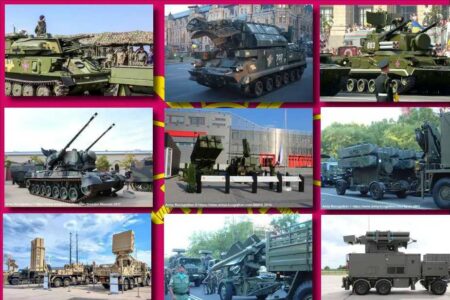
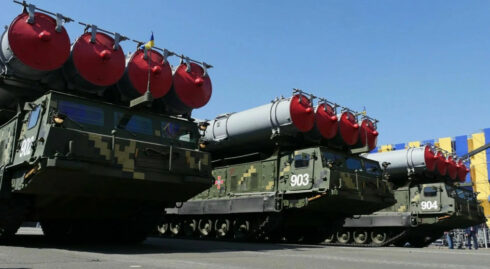
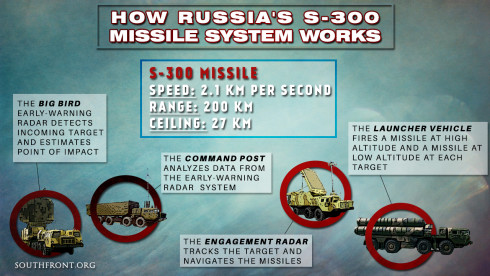
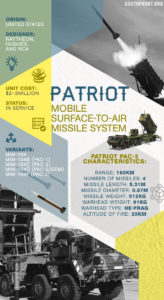
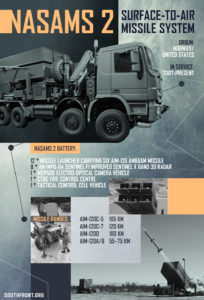



ein clown träumt von nato-waffen!
while selenskyj is celebrated everywhere, putin the great midget must hide in a bunker.
lol du volldepp.
70% of all un countries dont sanction russia and never will.
and the ziokhasar coca clown in kiew is a joke even for the most westeners who are brainfucked daily by the 24/7 pro ukro western mainstream media propaganda.
you may have nothiced than is every country they hoisted zelenski … they had to hide him from the public.
they never told when and where he would be and made sure there are no spectators.
everyone hates the little nazi cunt.
where is the nazi retard celebrated? hahaha ur a fucking nazi retard!
zelensky’s demands and nato acceptance despite the escalation for f-16s and it’s anti-aircraft missile suite is a tacit admission of the failure of the patriot system.
nato air defense systems similar to long range strike weapon system such as f16s are existential threats to russia… russian military will attempt to remove them or at least create a de-weaponized corridor along russia`s borders…it can turn into a prolonged cat and mouse game…unless s decisive actions are taken…
i’m so happy that here in the us we are trying to promote a nuclear war with russia whose missiles we can’t stop and our missiles can’t hit. this sounds like a good idea to me.
one patriot missile cost 5 million dollars, ukraine used 32-36 missiles against 2 kinzhal missiles but failed to intercepted them, 36 patriotsmissile cost 180 millon dollars, this money spented in 3 minutes.
still waiting for klitschko to show that hypersonic missile they supposedly shot down, not that thing in his backyard that doesn’t even look like the “dagger”